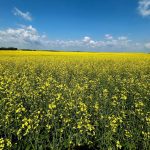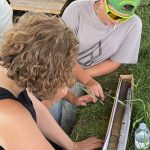Taking representative soil samples, choosing the right depths, and analyzing key nutrients can improve fertilizer planning and crop performance on western Canadian farms.


Agronomy Management: Take representative soil samples, choose the right depths, analyze key nutrients

Henry's outreach to farmers spanned more than half a century

Henry's outreach to farmers spanned more than half a century

A book well known to Grainews readers will remain available

The new facility will modernize crop and soil research and training at the University of Manitoba

Let us stretch your brain

Environmental conditions can dramatically affect the uptake of foliar-applied nutrients

Soil science prof Angela Bedard-Haughn takes over Aug. 15

Compaction facts, how to tackle it and its effect on your farm’s bottom line

Can investing in tile drainage make your Prairie soil less saline and more profitable?